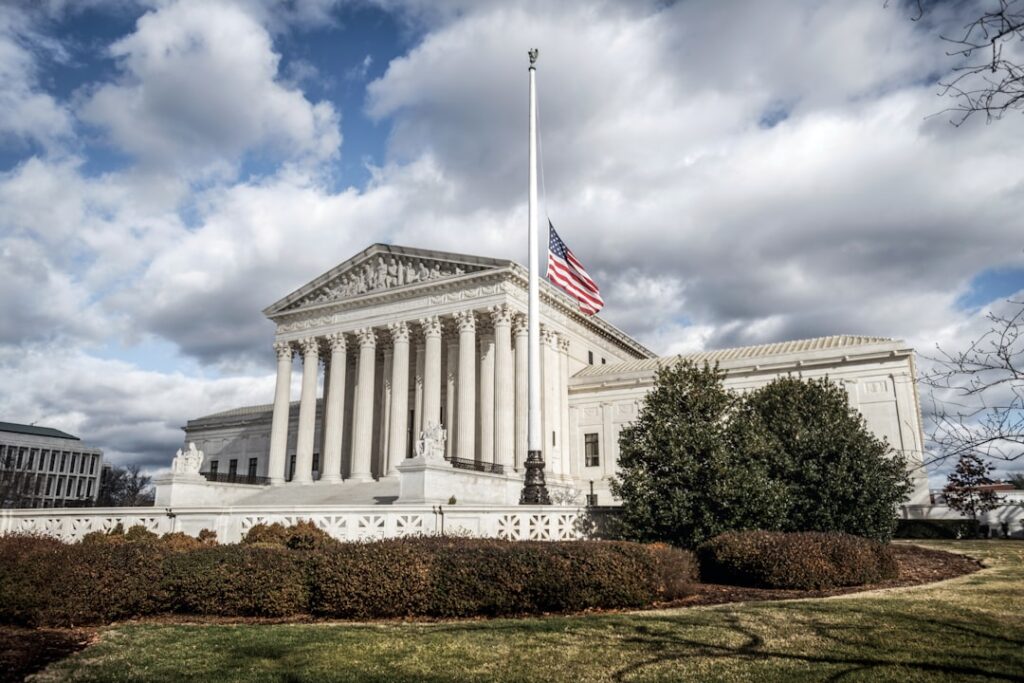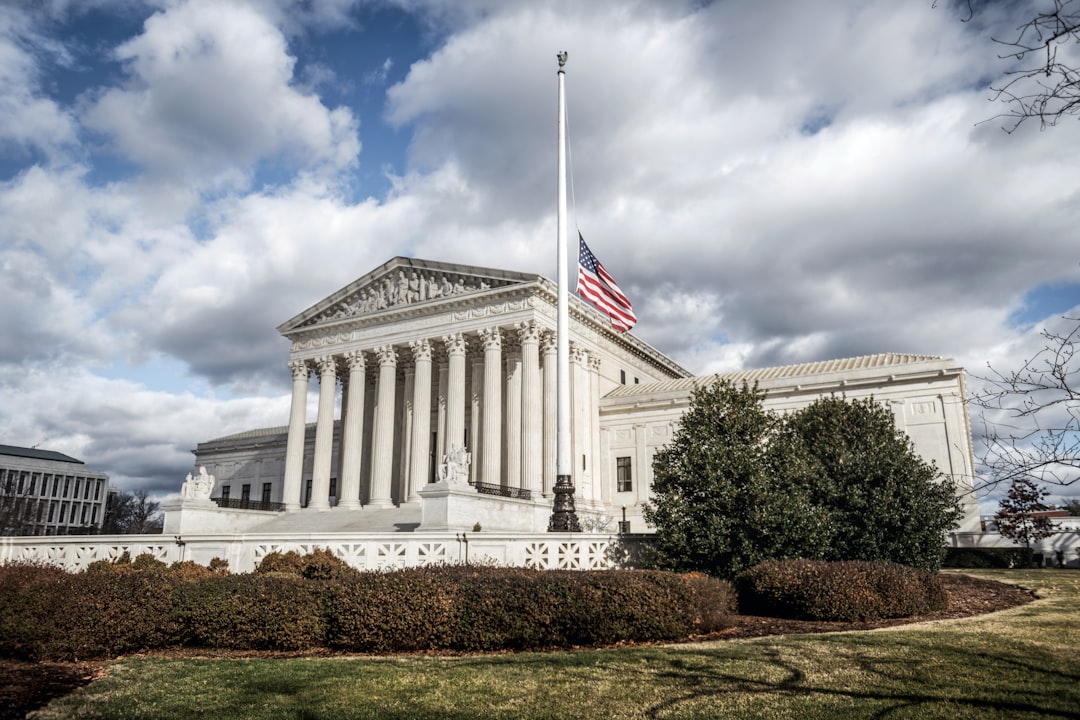Update: Action Alert: Petition U.S. Supreme Court to Support Adolescent Gender-Affirming Care
Rating: Transsupportive, Erin in the Morning, September 5, 2024 (PDF archive) (HTML archive) (Take Action)
Action Recommendations
- Action Alert: Petition U.S. Supreme Court to Support Adolescent Gender-Affirming Care on the GenderMenace.net Action Portal!
Content Summary
Families Split Apart: Families Fleeing Anti-Trans Laws File Amicus In Supreme Court Case
The amicus brief of families who have been impacted by anti-trans legislation and forced to split apart was one of many filed on Tuesday in the L.W. v. Skrmetti case challenging TN’s trans care ban.
Sep 05, 2024

On Tuesday, several amicus briefs were filed in support of the plaintiffs in the upcoming Supreme Court case, L.W. v. Skrmetti, with one brief highlighting harrowing stories of families fleeing their home states to access gender-affirming care for their children. This case involves Tennessee’s 2023 gender-affirming care ban, a sweeping law that severely restricts the rights of transgender Tennesseans, particularly minors. The plaintiffs are the Williams family and their 15-year-old transgender daughter, who are challenging the state’s Attorney General Jonathan Skrmetti on the legality of this law. Represented by the ACLU, they have faced an uphill legal battle after the Court of Appeals rejected their request to place an injunction on the bill.
One of the most impactful briefs details the stories of five families with transgender youth, all of whom have uprooted their lives, moving from one state to another to escape persecution. The Jones family, for example, lived in Texas with their 16-year-old daughter, Jenny, whom they describe as a kind, caring girl with many talents who dreams of attending Stanford and becoming a doctor.
The brief outlines a journey typical of many transgender youth. Jenny showed an immense dislike of being treated as a boy from a young age, and her mental health deteriorated when she reached puberty. “The recognition that she was not a boy, but was trapped in a boy’s body, was a very dark place for Jenny’s mental health,” says the brief. This crisis escalated, leading to self-harm and suicidal ideation. While puberty blockers initially helped, it wasn’t enough—Jenny “had finally recognized who she is, but she still was not able to fully be that person.” However, once she started estrogen therapy and joined girls’ activities at school, her mental health improved significantly as she “gradually started feeling happier with the feminine changes in her body.”
The brief then turned towards the impact of anti-trans legislation on Jenny and her family. When Texas began pushing Senate Bill 14, a sweeping ban on gender-affirming care for minors, Jenny and her family were terrified. They considered boarding schools and flights to nearby states to access gender-affirming care, but leaving wasn’t simple. Jenny’s father needed to stay in Texas for his job, and their eldest daughter was starting her senior year of high school. Ultimately, Jenny and her mother made the difficult decision to move to Oregon, leaving the rest of the family behind in Texas.
“Jenny and her mother had to leave behind not only their family, but also the community of friends that they had developed over the course of living in the state for 10 years. It was also difficult for them to feel like a family from afar. Jenny’s mother missed being around for her eldest daughter during her senior year of high school, including celebrating her birthday, helping with her college search and attending her final school play,” says the brief. Financial strain followed, with the brief noting that the ban caused the family “nothing but harm.”
Another case involves Leni Doe and her 14-year-old son, Noah, from North Carolina. Described as a “boys’ boy” from a young age, Noah disliked anything associated with femininity, wanted to dress as a boy, and was miserable when forced to conform to standards set for girls. He enjoyed skateboarding and being outdoors.
Noah’s mental health took a severe turn when he hit puberty and began his menstrual cycle, triggering anxiety attacks and thoughts of self-hate and suicide. By the time his family sought help, it was too late for puberty blockers. After years of therapy and discussions with medical professionals, they were ready to start testosterone therapy when North Carolina’s House Bill 808 was enacted, halting Noah’s progress and crushing his hopes. This led to a costly $10,000 move to Leni’s home state of Michigan, which the brief describes as “a financial burden from which the family is still recovering.” Noah had to start over with new providers, causing further delays in his care.
Because of the high demand from families moving to access gender-affirming care, Noah waited 10 months for his first appointment. He had to meet with social workers, endocrinologists, therapists, and nurses before his care could begin. “Now that Noah is receiving hormone therapy, he is the happiest and healthiest version of himself. He has a great group of friends, is social, and is looking to the future. For a while, Leni thought this would never be possible.”
Parker Chapman’s story is similar. A once-thriving young girl, she fell into depression and self-harm in order “escape the pain from her biological sex not aligning with her gender identity” when puberty set in. When she came out to her parents, they saw their child “smile for the first time in years.” Parker began treatment, including puberty blockers and later estrogen, which made her “noticeably happier, well-adjusted and talkative again,” the brief continues, “Her self-harming behaviors, which had improved but had not completely resolved over the course of her mental health treatment, also stopped.”
However, Missouri’s Senate Bill 49, banning gender-affirming care for minors, set Parker back. “Parker experienced a setback in her self-harm; although she tried to hide it, Jackie saw marks from cutting on her legs,” the brief states. Parker had also revealed to her parents that before receiving gender-affirming treatment, she had contemplated suicide, describing her life as “torturous, like living in a bad dream.” Despite this, Parker pushed herself through summer school, worked full-time at an internship, graduated early, and enrolled in a college in Minnesota — all within months. This came at a cost: she had to leave her family behind and miss key moments like high school graduation with her peers.
Other stories in the brief illustrate families who cannot afford to move. Fourteen-year-old Richard from Texas was on testosterone when the care ban passed, forcing his family to make regular, costly trips to New Mexico. This was particularly challenging as they are low-income and face racial discrimination. Similarly, 17-year-old Owen from Tennessee had been receiving care through Cincinnati Children’s Hospital in Ohio, but when Ohio passed House Bill 68, the family had to seek care in Illinois, the nearest available state. Moving is not an option, so they do their best to provide Owen the care he needs.
The stories in the briefs highlight just what families have to go through to get their trans kids essential medical care, and the harm that bans on gender-affirming care do to people who are just trying to take care of their mental and physical health. These bans don’t just impact care—they split families apart, forcing parents and children to live in separate states, missing out on important life events and daily connections. These bans aren’t done to protect kids, but rather to satiate the needs of people who hate them simply for existing as who they are. Families are left with an impossible choice: stay together and risk their child’s well-being or separate to get the care their child needs.
| A guest post by Mira Lazine Mira Lazine is a freelance journalist covering LGBTQ+ issues, politics, and science. She can be found at miralazine.com or on BlueSky, @miralazine |


Leave a Reply